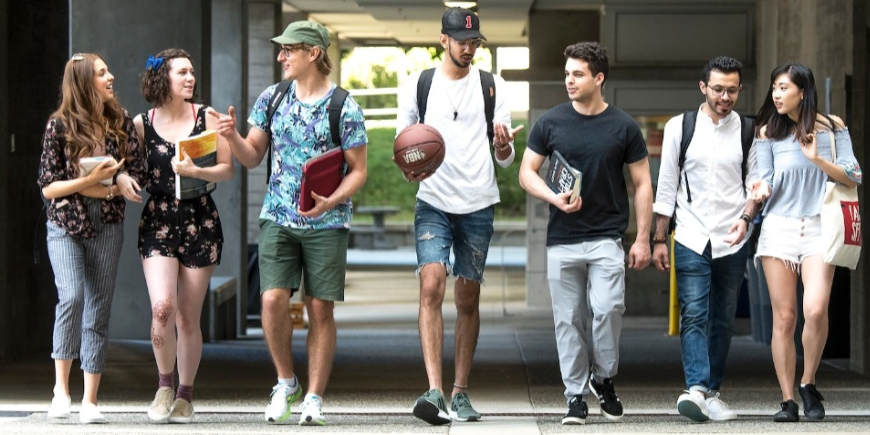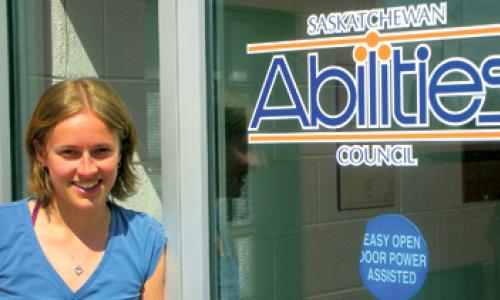
When I first met Pamela Santos at this year’s Leadership Summit, I was immediately drawn to her enthusiasm. Pamela, who is currently a third-year Business and Criminology student, introduced herself to me in an icebreaker game at the summit.
During that game, she happily talked to me about her experiences as an Orientation Leader (OL). In fact, she was so enthusiastic about the volunteer position that she single-handedly convinced me to apply!
Because SFU Development recruits Orientation Leaders every Fall semester, I thought it might be a good idea to ask Pamela about her volunteer experiences so the rest of the student body can learn more about the volunteer position as well as the benefits of becoming an Orientation Leader. She has been an Orientation Leader for two years, so she has great insights about the role. I also asked her for some tips that she can provide prospective Orientation Leader applicants.
What originally encouraged you to apply as an Orientation Leader?
At first my older sister who had been an Orientation Leader herself encouraged me to apply. Afterward, my own Orientation Leader, who I thought did an awesome job, convinced me to apply.
Did the position meet your expectations? What aspects of the position surprised you the most?
It exceeded my initial expectations. Along with the training, there was the overwhelming sense of community and friendly atmosphere. An aspect of the position that surprised me the most was how everyone was approachable and willing to help. If you take initiative to ask questions, you’ll get the support that you need, especially during Orientation and special events such as the Open House.
What’s the most rewarding part about being an Orientation Leader?
One of the most rewarding part about being an OL is the sense of community you feel and the connections you make with people from the position.
In your opinion, how can becoming an Orientation Leader help students with their future career goals?
I’ve gained valuable knowledge and skills through this position. For example, we’ve learned about the services that SFU offers to students and where those services can be found. From this, we learned about the resources and workshops available around campus and how we could also take advantage of them to get closer to our future career goals.
What skills can SFU students gain from this volunteer position?
Skills students could gain include communication, public speaking, teamwork, conflict resolution, problem solving and time-management.
From your personal experience, how much time commitment does the volunteer position entail?
Including training, I would guess that the position required about 100 hours, which is about 4 days spread over a 10-month period.
What are some of the challenges new Orientation Leaders can expect from the position?
Having to look after and speak in front of a diverse group of first-year students may be frightening and challenging for some. But to overcome these challenges, volunteers can reach out to their team leader and get support from their team. Chances are, most new volunteers will have the same worries and can, along with veteran Orientation Leaders (those who have been OLs in the past), help each other overcome these challenges.
Volunteers will be trained step by step as to what will happen during Orientation. They can expect to have the tools and knowledge as well as the support needed to fulfill their duties.
Any word of advice for prospective applicants on interviews for this position?
Be friendly but stay professional. Enjoy yourself and have fun with it!













